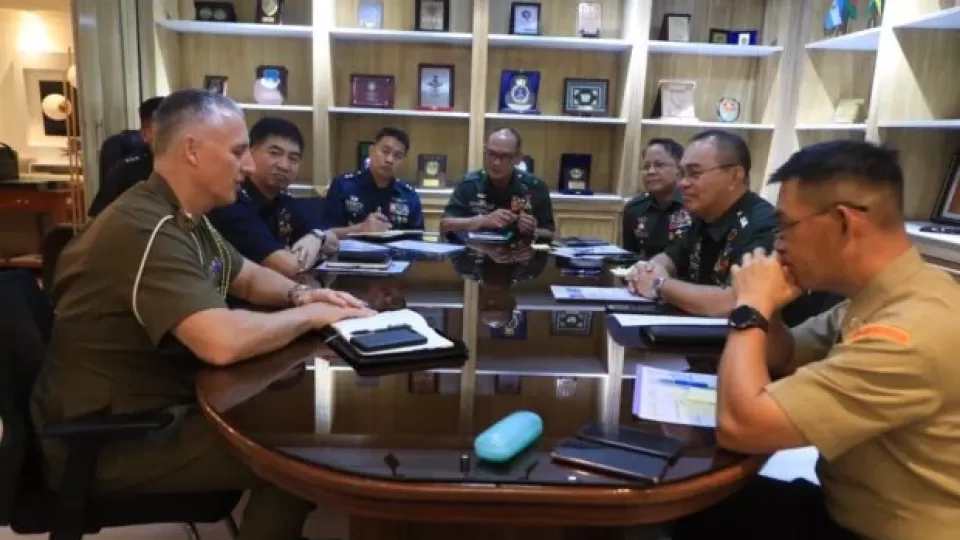March 16, 2023
MANILA – Australia’s military chief called his Philippine counterpart on Monday (March 13) to inform him of Canberra’s procurement of nuclear-powered submarines from Washington, the Armed Forces of the Philippines (AFP) said on Tuesday (March 14).
The call came ahead of the launch of the submarine deal in San Diego, California in a ceremony led by US President Joe Biden, Australian Prime Minister Anthony Albenese and UK Prime Minister Rishi Sunak.
Biden said at the ceremony that the submarine deal was part of the Australia-UK-US (AUKUS) pact to maintain stability in the Indo-Pacific region.
The Philippines was one of the first countries in the region to express support for the security pact forged in 2021.
According to the AFP, Australia’s Chief of Defense Force Gen. Angus Campbell spoke with Philippine military chief Gen. Andres Centino to “inform [him] of this development and assure…his counterpart of their continued coordination.”
“The phone call marked solid military coordination between the Philippines and Australia as partners in keeping the peace and stability in the South Pacific region,” the AFP also said in a statement.
‘First project’
In San Diego, Biden described the deal as “our first under AUKUS—developing Australia’s conventionally armed nuclear-powered submarine capacity.”
The deal would allow Australia to acquire three nuclear-powered submarines from the United States at an estimated cost of $245 billion.
Biden stressed in his speech at the ceremony that the submarines were “nuclear-powered,” not “nuclear-armed.”
“I want to be clear to everyone from the outset, right off the bat, so there’s no confusion or misunderstanding on that critical point,” the US leader said in his remarks, the transcript of which was posted on the website of the US Embassy in Australia.
Albanese, in his remarks also posted on the website, said the submarines are “the biggest single investment in Australia’s defense capability in all of our history, strengthening Australia’s national security and stability in our region.”
‘Defense partner’
In her tweet about the AUKUS deal, Australian Ambassador to the Philippines Hae Kyong Yu said “Australia is investing in capabilities to meet the challenges of our strategic circumstances and ensure the #IndoPacific remains stable, secure and prosperous.”
She also expressed Canberra’s gratitude for Manila’s support, as her country aims to become “a more capable defense partner in the region.”
Reached for comment, Justin Burke, a visiting scholar from Australia’s Lowy Institute for International Policy, said Canberra’s acquisition of nuclear-powered submarines “should be understood as a message of deterrence against an amphibious attack on Taiwan.”
“Like the phrasing recently used by President Marcos, Australia’s leaders have previously said it is hard to imagine a scenario where we would not be involved in the defense of Taiwan,” Burke also said.
But Daniel Kritenbrink, of the US State Department, said he didn’t want to speculate where any of these submarines “may or may not operate.”
“And again to make [it] clear, once Australia takes possession of its own submarines, Australia will make its own sovereign decisions about where to sail its own submarines,” said Kritenbrink, assistant secretary for the department’s Bureau of East Asian and Pacific Affairs, at an online briefing on Tuesday.
In a separate briefing by the White House posted on its website, a source described as “senior administration official”, said that stability in the Indo-Pacific is “under threat not only by developments in China, but other countries like North Korea and Russia, which share a Pacific engagement as well.”—WITH A REPORT FROM JACOB LAZARO


